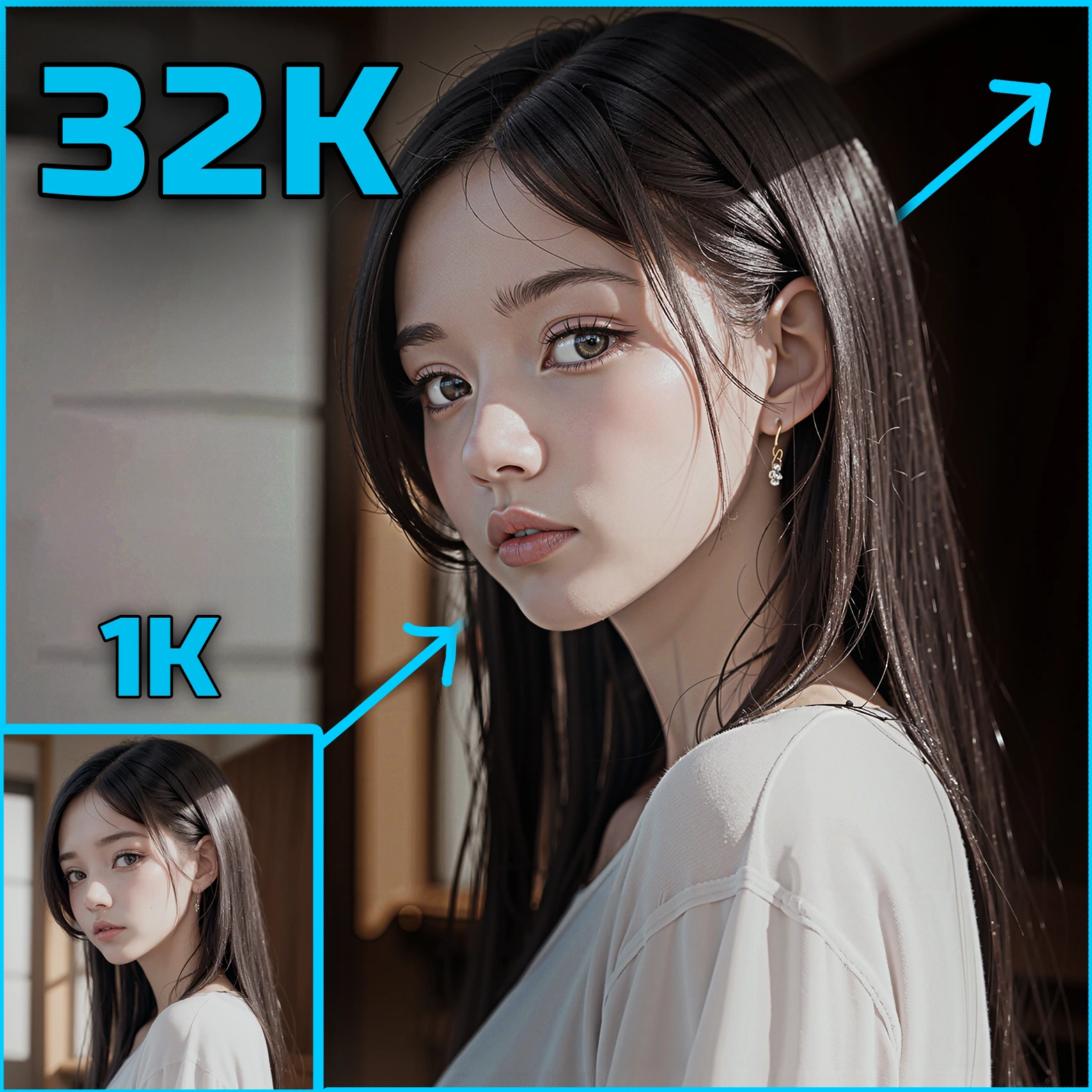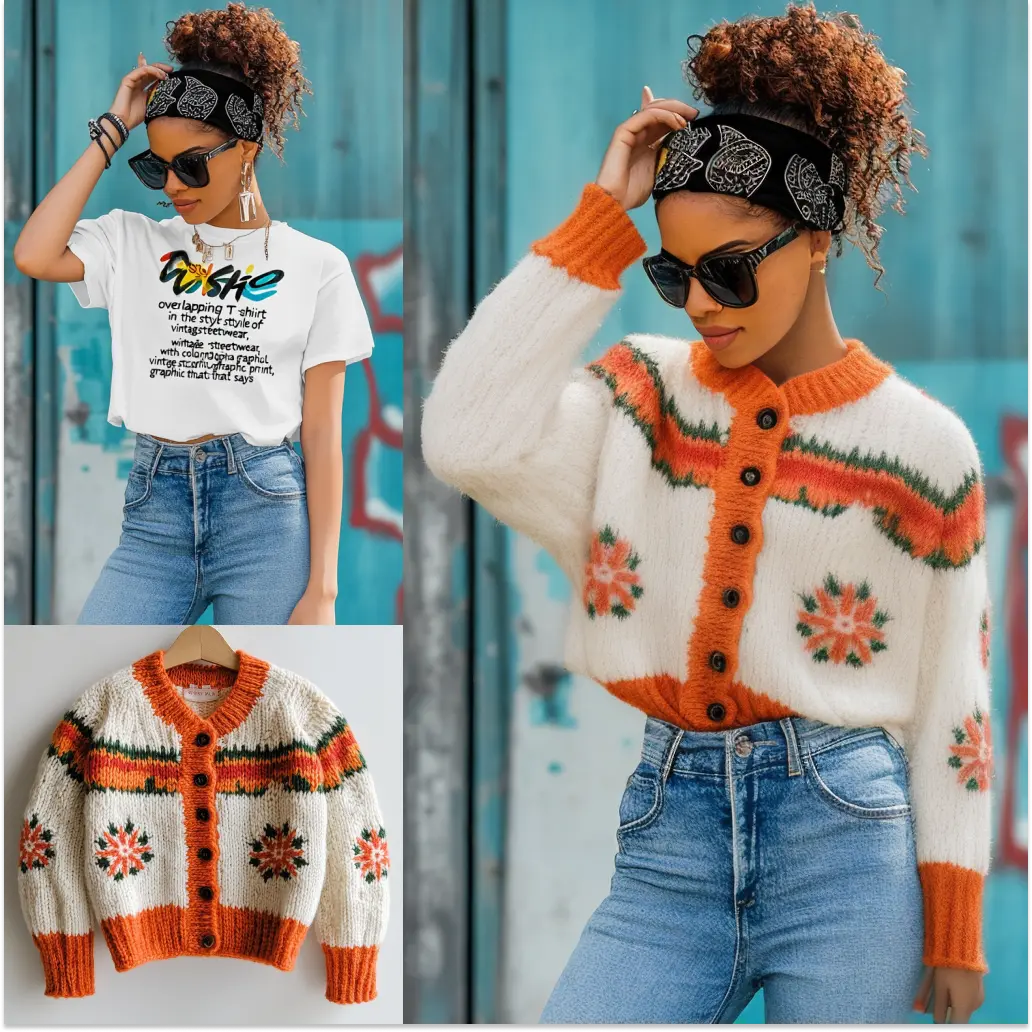ComfyUI Extension: LoRA Tag Loader for ComfyUI
comfyui_lora_tag_loader
badjeff (Account age: 5647 days) Nodes
View all nodes(1) Latest Updated
2024-05-22 Github Stars
0.08K
How to Install LoRA Tag Loader for ComfyUI
Install this extension via the ComfyUI Manager by searching for LoRA Tag Loader for ComfyUI- 1. Click the Manager button in the main menu
- 2. Select Custom Nodes Manager button
- 3. Enter LoRA Tag Loader for ComfyUI in the search bar
Visit ComfyUI Online for ready-to-use ComfyUI environment
- Free trial available
- 16GB VRAM to 80GB VRAM GPU machines
- 400+ preloaded models/nodes
- Freedom to upload custom models/nodes
- 200+ ready-to-run workflows
- 100% private workspace with up to 200GB storage
- Dedicated Support
LoRA Tag Loader for ComfyUI Description
LoRA Tag Loader for ComfyUI is a custom node for ComfyUI that reads LoRA tags from text and integrates them into the checkpoint model, streamlining the process of loading specific tags efficiently.
LoRA Tag Loader for ComfyUI Introduction
The comfyui_lora_tag_loader is an extension for ComfyUI, a powerful and modular interface for creating and managing Stable Diffusion workflows. This extension allows you to read LoRA (Low-Rank Adaptation) tags from text prompts and load them into a checkpoint model. This can be particularly useful for AI artists who want to fine-tune their models with specific styles or attributes without needing to manually adjust the model parameters.
Key Benefits:
- Simplifies Workflow: Automatically extracts and applies LoRA tags from text prompts, streamlining the process of model customization.
- Enhanced Control: Allows for fine-tuning of both the UNet and text encoder components of the model, providing more granular control over the output.
- Efficiency: Reduces the need for manual intervention, making it easier to experiment with different styles and attributes.
How LoRA Tag Loader for ComfyUI Works
The comfyui_lora_tag_loader works by parsing text prompts to identify LoRA tags, which are then used to adjust the model's parameters. Here's a simplified explanation of the process:
- Text Parsing: The extension scans the text prompt for LoRA tags, which are formatted as
<lora:StyleName:Weight>. For example,<lora:CroissantStyle:0.8>indicates a style named "CroissantStyle" with a weight of 0.8. - Tag Extraction: Once identified, these tags are extracted from the text prompt.
- Model Adjustment: The extracted tags are used to adjust the model's parameters. The weight specified in the tag determines the strength of the adjustment.
- Output Generation: The adjusted model is then used to generate the final output, which can be further processed or directly used in your projects.
LoRA Tag Loader for ComfyUI Features
Tag Extraction
- Basic Tag Extraction: Extracts tags formatted as
<lora:StyleName:Weight>from the text prompt. - Advanced Tag Extraction: Supports additional weights for different components, such as
<lora:StyleName:0.8:0.7>, where 0.8 is applied to the UNet and 0.7 to the text encoder.
Model Adjustment
- UNet and Text Encoder: Allows for separate weights for the UNet and text encoder, providing more control over the model's behavior.
- Merged Checkpoint Model: Outputs a merged checkpoint model that incorporates the adjustments specified by the LoRA tags.
Customization
- Flexible Weighting: Users can specify different weights for different components, allowing for fine-tuned control over the model's output.
- Dynamic Adjustment: The extension dynamically adjusts the model based on the tags in the text prompt, making it easy to experiment with different styles and attributes.
LoRA Tag Loader for ComfyUI Models
The comfyui_lora_tag_loader does not come with predefined models but works with any models compatible with ComfyUI. You can use it with various Stable Diffusion models, including SD1.x, SD2.x, and SDXL. The extension allows you to apply LoRA tags to these models to customize their behavior.
Example Models:
- SD1.x: Suitable for general-purpose image generation.
- SD2.x: Offers improved performance and additional features.
- SDXL: Provides the latest advancements in Stable Diffusion technology.
What's New with LoRA Tag Loader for ComfyUI
Recent Updates:
- Advanced Weighting: Added support for specifying different weights for the UNet and text encoder.
- Improved Parsing: Enhanced the text parsing algorithm to better identify and extract LoRA tags.
- Bug Fixes: Addressed various bugs to improve stability and performance.
Why It Matters:
- Enhanced Control: The ability to specify different weights for different components allows for more precise control over the model's output.
- Improved Stability: Bug fixes ensure a smoother and more reliable user experience.
Troubleshooting LoRA Tag Loader for ComfyUI
Common Issues and Solutions:
- Tags Not Recognized:
- Solution: Ensure that your tags are correctly formatted as
<lora:StyleName:Weight>. Double-check for any typos or formatting errors.
- Model Not Adjusting:
- Solution: Verify that the weights specified in the tags are within a reasonable range (e.g., 0.0 to 1.0). Extremely high or low values may not produce the desired effect.
- Performance Issues:
- Solution: Ensure that your system meets the minimum requirements for running ComfyUI and the
comfyui_lora_tag_loaderextension. Consider reducing the complexity of your workflow if you experience performance issues.
Frequently Asked Questions:
- Can I use multiple LoRA tags in a single prompt?
- Yes, you can include multiple LoRA tags in a single prompt to apply multiple styles or attributes.
- What happens if I specify conflicting weights?
- The extension will apply the weights as specified. If the weights conflict, the final output may not be as expected, so it's best to experiment with different values to find the optimal settings.
Learn More about LoRA Tag Loader for ComfyUI
Additional Resources:
- ComfyUI Examples: Explore various examples to see what ComfyUI and its extensions can do.
- ComfyUI Documentation: Detailed documentation on how to use ComfyUI and its features.
- Community Forums: Join the ComfyUI Matrix Space for discussions, support, and sharing your experiences with other users.
By leveraging these resources, you can get the most out of the
comfyui_lora_tag_loaderextension and enhance your AI art projects with ease.
LoRA Tag Loader for ComfyUI Related Nodes
RunComfy is the premier ComfyUI platform, offering ComfyUI online environment and services, along with ComfyUI workflows featuring stunning visuals. RunComfy also provides AI Playground, enabling artists to harness the latest AI tools to create incredible art.



